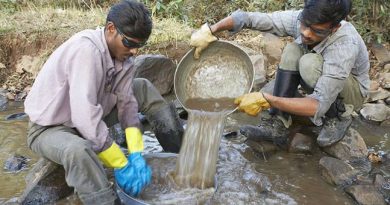How Traveling Can Support Rehabilitation From Drugs and Alcohol
Embarking on the path to rehabilitation from drugs and alcohol is a courageous and transformative decision. It requires strength, determination, and a willingness to embrace change. While traditional therapy and counseling are integral components of the recovery process, the power of travel should not be underestimated. Traveling has the ability to support and enhance rehabilitation by providing individuals with a fresh perspective, opportunities for self-discovery, a supportive network, and the creation of positive memories. In this blog, we will explore how traveling can be a valuable tool in the journey of recovery, offering unique benefits and empowering individuals to reclaim their lives.
Travel Helps You Break Free From Old Patterns
Rehabilitation from drugs and alcohol is a challenging and transformative journey. It requires dedication, support, and a commitment to change. While traditional methods of therapy and counseling play a crucial role in the recovery process, there is an often-overlooked tool that can provide a powerful boost: travel. By immersing oneself in new environments, cultures, and experiences, individuals seeking rehabilitation can find renewed strength, inspiration, and a fresh perspective on life.
When trapped in addiction, familiar surroundings can act as triggers that tempt individuals to fall back into old habits. Traveling offers an opportunity to break free from those patterns. Stepping outside one’s comfort zone and immersing oneself in unfamiliar territory can create a clean slate, allowing for new beginnings and personal growth. It provides a chance to leave behind the physical and psychological triggers that can hinder progress and embrace a world filled with possibilities.
Traveling to new states, like Utah or California, for instance, when you live in Idaho can help you make a complete break from your familiar surroundings. It could also be a long-term move instead of a short-term trip. When you travel for rehab, you get the freedom to choose between inpatient or outpatient in Utah or California or even places like Arizona or Texas. Of course, outpatient options would give you more of an opportunity to explore your surroundings while you are in addiction recovery. You can choose locations with beaches, or quiet mountain towns surrounded by trees. You could head somewhere just to detox or stay there long-term as you figure out life without alcohol or drugs. No matter which one you decide on, traveling will help you break out of the old patterns associated with your hometown.
Go on a Journey of Self-Discovery
Embarking on a journey of rehabilitation often goes hand in hand with embarking on a journey of self-discovery. Traveling to new destinations allows individuals to explore their inner selves while navigating uncharted territories. As one interacts with different people, they gain valuable insights into their own strengths, weaknesses, and aspirations.
Traveling can be seen as a metaphorical mirror reflecting back one’s desires, fears, and dreams. It presents opportunities for introspection and self-reflection, fostering a deeper understanding of the underlying causes of addiction. Whether it’s hiking through majestic mountains, strolling along serene beaches, or marveling at architectural wonders, the experience of travel can evoke a sense of wonder and awe, rekindling the flame of hope and reminding individuals of the beauty and joy that exists beyond substance abuse.
Make Friends and Gather Support
Recovery from drug or alcohol addiction is not a solitary endeavor. Building a strong support network is essential for long-term success. While traditional rehabilitation programs provide a structured environment for healing, travel offers a unique opportunity to expand one’s network beyond the walls of a treatment center.
When traveling, individuals have the chance to connect with like-minded individuals who have faced similar struggles or even locals who can offer valuable insights and support. Engaging in group activities or joining travel communities can foster a sense of camaraderie, providing a safe and non-judgmental space for sharing experiences and seeking advice. These newfound connections and friendships can be a lifeline during difficult moments, offering encouragement, accountability, and friendship throughout the recovery journey.
Create Great Memories
Memories associated with substance abuse can be powerful triggers for relapse. Traveling provides an opportunity to create new, positive memories that overshadow the negative associations of addiction. Exploring new landscapes, trying new foods, engaging in thrilling activities, and connecting with local cultures can fill the mind and heart with joyful experiences, slowly rewiring the brain’s neural pathways associated with addiction.
Every journey becomes a chapter in the story of recovery, with each new experience serving as a testament to one’s strength and resilience. Traveling opens the door to endless possibilities, offering individuals a chance to reclaim their identity and redefine themselves beyond the shadow of addiction. The memories created during travel become reminders of personal growth, strength, and the determination to embrace a life free from substances.




